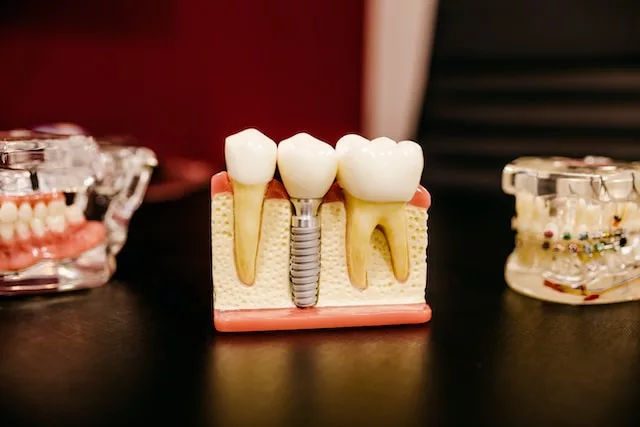

Dental Implants Cost: How Much Should You Expect to Pay?
If you’re missing teeth, dental implants are a popular option for restoring your smile and your confidence. But what about the cost? In this ultimate guide to dental implants cost, we’ll explore everything you need to know about how much you can expect to pay for this procedure.
1. Introduction
Dental implants are a popular option for those looking to restore their smile and improve their overall oral health. However, many people are hesitant to consider dental implants because of the perceived cost. In this guide, we’ll explore everything you need to know about dental implants cost, including the factors that can affect the price, financing options, and insurance coverage.
2. What Are Dental Implants?
Dental implants are prosthetic teeth that are surgically implanted into the jawbone. The implant itself is a small, titanium post that serves as the root for the prosthetic tooth. Once the implant has been placed, a custom-made crown is attached to the top of the implant, giving the appearance of a natural tooth.
3. Benefits of Dental Implants
Dental implants offer many benefits beyond just the restoration of missing teeth. They can improve your speech, enhance your overall oral health, and even help to prevent further tooth loss. Additionally, dental implants are designed to look and feel just like your natural teeth, providing a more natural-looking smile.
4. Types of Dental Implants
There are several types of dental implants available, including endosteal implants, subperiosteal implants, and zygomatic implants. Endosteal implants are the most common type of implant and are placed directly into the jawbone. Subperiosteal implants are placed under the gum tissue but above the jawbone, while zygomatic implants are used in cases where there is insufficient jawbone to support traditional implants.
5. Factors That Affect Dental Implants Cost
There are several factors that can affect the cost of dental implants, including the number of implants needed, the type of implant used, the location of the implant, and the experience and qualifications of the dental implant provider. Additionally, if additional procedures such as bone grafting or sinus lifting are required, this can also increase the overall cost.
6. Average Dental Implants Cost
The cost of dental implants can vary widely depending on the factors mentioned above. However, the average cost of a single dental implant ranges from $1,000 to $4,000, with the total cost for a full set of implants ranging from $20,000 to $45,000.
7. How to Finance Dental Implants
Financing options are available to help make dental implants more affordable. Many dental implant providers offer financing plans that allow patients to spread the cost of the procedure over time. Additionally, healthcare credit cards and personal loans may also be an option for financing dental implants.
8. Insurance Coverage for Dental Implants
While dental implants are not typically covered by insurance, some plans may cover a portion of the cost, particularly if the implants are
being used to replace teeth that were lost due to injury or disease. It’s important to check with your insurance provider to see if any coverage is available for dental implants.
9. Are Dental Implants Worth the Cost?
While dental implants may have a higher initial cost than other tooth replacement options, such as dentures or bridges, they offer many long-term benefits that make them worth the investment. Dental implants are durable and long-lasting, and they can improve your overall oral health, which can lead to a better quality of life.
10. Alternative Options to Dental Implants
If the cost of dental implants is a concern, there are alternative options available. Dentures and bridges are both popular options for tooth replacement and are typically more affordable than dental implants. However, these options may not be as long-lasting or provide the same level of functionality as dental implants.
11. Choosing the Right Dental Implant Provider
When choosing a dental implant provider, it’s important to do your research and find a provider who is experienced and qualified in the procedure. Look for providers who have a high success rate with dental implants and who use the latest technology and techniques.
12. Preparing for Your Dental Implant Procedure
Before your dental implant procedure, your dental implant provider will likely provide you with instructions on how to prepare. This may include avoiding certain medications, fasting for a period of time before the procedure, and arranging for transportation to and from the appointment.
13. The Dental Implant Procedure
The dental implant procedure itself typically involves several steps, including the placement of the implant into the jawbone, a healing period to allow the implant to fuse with the bone, and the attachment of the custom-made crown. The procedure is typically done under local anesthesia, and most patients experience little to no pain during the procedure.
14. Recovery and Aftercare for Dental Implants
After the procedure, it’s important to follow your dental implant provider’s instructions for recovery and aftercare. This may include avoiding certain foods, practicing good oral hygiene, and attending follow-up appointments to monitor the healing process.
15. Conclusion
Dental implants cost may seem daunting, but they offer a long-lasting and functional solution for those looking to restore their smile and improve their overall oral health. By understanding the factors that affect dental implants cost, financing options, and insurance coverage, you can make an informed decision about whether dental implants are right for you. Remember to choose a qualified and experienced dental implant provider, prepare properly for the procedure, and follow all aftercare instructions for the best possible outcome.



